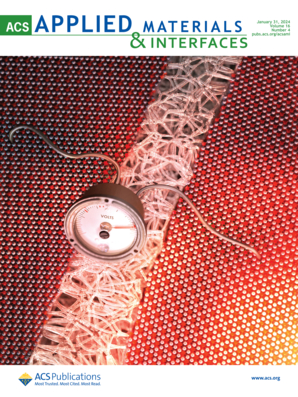通过基于变换器的序列建模实现知识增强型对话推荐
IF 8.3
2区 材料科学
Q1 MATERIALS SCIENCE, MULTIDISCIPLINARY
引用次数: 0
摘要
在对话推荐系统(CRS)中,对话通常涉及一系列项目和项目相关实体或属性,例如导演是电影的相关实体。在对话的发展过程中,这些项目和项目相关实体经常被提及,从而导致它们之间潜在的顺序依赖关系。然而,大多数现有的 CRS 都忽略了这些潜在的顺序依赖关系。在本文中,我们首先提出了一种基于变换器的顺序对话推荐方法,命名为 TSCR,以模拟对话中的顺序依赖关系,从而改进 CRS。在 TSCR 中,我们用项目和与项目相关的实体来表示会话,并通过考虑提及的项目和与项目相关的实体来构建用户序列,从而发现用户偏好。基于构建的序列,我们部署了一个 Cloze 任务来预测序列中的推荐项目。同时,在某些领域,由项目及其相关实体形成的知识图谱是现成的,这些知识图谱提供了它们之间各种不同的关联。鉴于 TSCR 无法从这类知识图谱中获益,我们提出了知识图谱增强版 TSCR,称为 TSCRKG。具体来说,我们利用知识图谱离线初始化我们的模型 TSCRKG,并用知识图谱中的多跳路径增强用户对话序列(即对话中提到的项目和项目相关实体的序列)。实验结果表明,我们的 TSCR 模型明显优于最先进的基线模型,增强版 TSCRKG 在 TSCR 的基础上进一步提高了推荐性能。本文章由计算机程序翻译,如有差异,请以英文原文为准。
Knowledge-Enhanced Conversational Recommendation via Transformer-based Sequential Modelling
In Conversational Recommender Systems (CRSs), conversations usually involve a set of items and item-related entities or attributes, e.g., director is a related entity of a movie. These items and item-related entities are often mentioned along the development of a dialog, leading to potential sequential dependencies among them. However, most of existing CRSs neglect these potential sequential dependencies. In this paper, we first propose a Transformer-based sequential conversational recommendation method, named TSCR, to model the sequential dependencies in the conversations to improve CRS. In TSCR, we represent conversations by items and the item-related entities, and construct user sequences to discover user preferences by considering both the mentioned items and item-related entities. Based on the constructed sequences, we deploy a Cloze task to predict the recommended items along a sequence. Meanwhile, in certain domains, knowledge graphs formed by the items and their related entities are readily available, which provide various different kinds of associations among them. Given that TSCR does not benefit from such knowledge graphs, we then propose a knowledge graph enhanced version of TSCR, called TSCRKG. In specific, we leverage the knowledge graph to offline initialize our model TSCRKG, and augment the user sequence of conversations (i.e., sequence of the mentioned items and item-related entities in the conversation) with multi-hop paths in the knowledge graph. Experimental results demonstrate that our TSCR model significantly outperforms state-of-the-art baselines, and the enhanced version TSCRKG further improves recommendation performance on top of TSCR.
求助全文
通过发布文献求助,成功后即可免费获取论文全文。
去求助
来源期刊

ACS Applied Materials & Interfaces
工程技术-材料科学:综合
CiteScore
16.00
自引率
6.30%
发文量
4978
审稿时长
1.8 months
期刊介绍:
ACS Applied Materials & Interfaces is a leading interdisciplinary journal that brings together chemists, engineers, physicists, and biologists to explore the development and utilization of newly-discovered materials and interfacial processes for specific applications. Our journal has experienced remarkable growth since its establishment in 2009, both in terms of the number of articles published and the impact of the research showcased. We are proud to foster a truly global community, with the majority of published articles originating from outside the United States, reflecting the rapid growth of applied research worldwide.
 求助内容:
求助内容: 应助结果提醒方式:
应助结果提醒方式:


